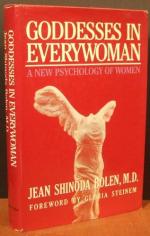|
This section contains 528 words (approx. 2 pages at 400 words per page) |

|
Book 2, Goddesses: Chapter 9, Demeter Summary and Analysis
Demeter's primary role in ancient Grecian mythology was that she was a mother goddess. Unlike the other goddesses, the majority of her maternal energies were dedicated to the fertility of the earth itself. As such, she was the mother of grain and of all the rest of the crops of farmers.
She occurred during what the history of the Olympiads is during the first incestuous generations where natural forces and gods are confounded. She had only child who was the goddess Persephone. Persephone was a daughter of Zeus. Demeter and Zeus were also brother and sister to one another. Demeter was with Zeus before their youngest sister Hera, who became both lover and wife to Zeus. The author does not describe the union of Demeter and Zeus to have been a rape, but it is...
(read more from the Book 2, Goddesses: Chapter 9, Demeter Summary)
|
This section contains 528 words (approx. 2 pages at 400 words per page) |

|




